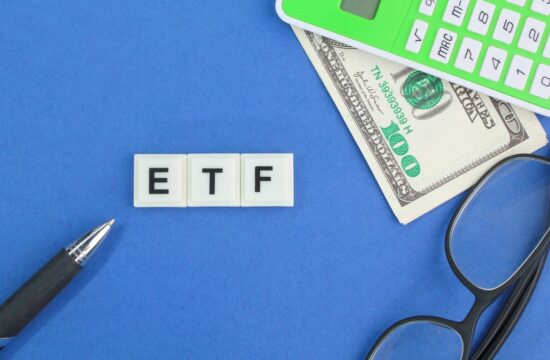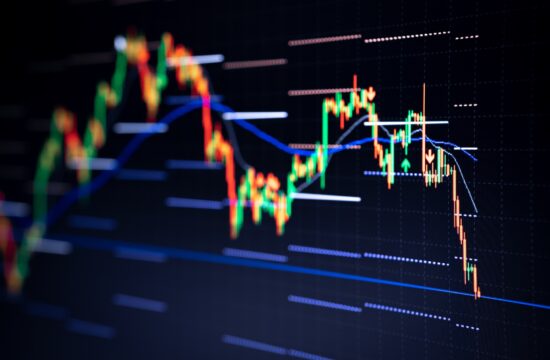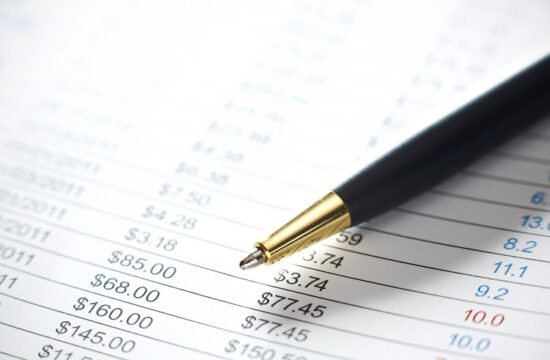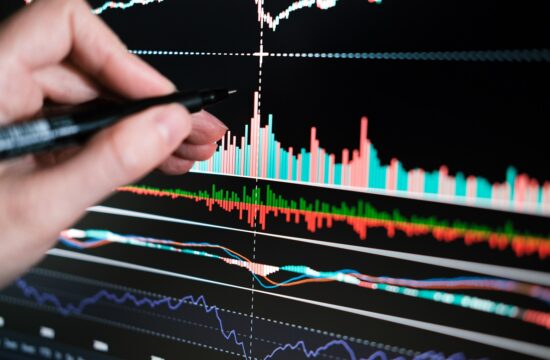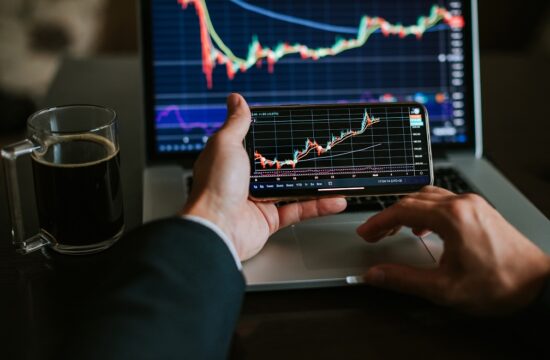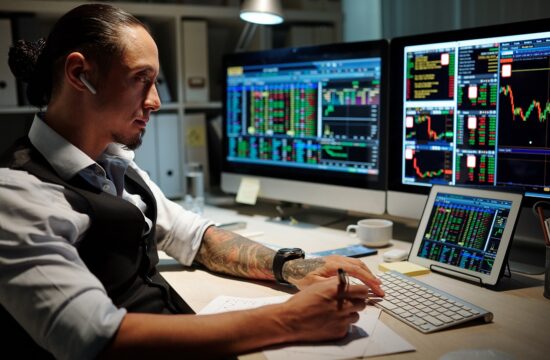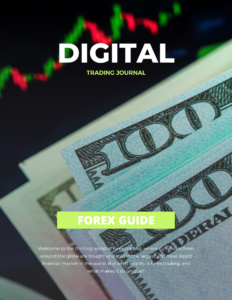
Welcome to the thrilling world of forex trading, where currencies from around the globe are bought and sold in the largest and most liquid financial market in the world. With a daily trading volume exceeding $6 trillion, forex trading offers immense opportunities for profit and has captured the attention of traders and investors worldwide. But what exactly is forex trading, and what makes it so unique? In this guide, we will delve into the world of forex trading, uncovering its intricacies, advantages, and challenges, and exploring how traders can navigate this dynamic market to potentially achieve financial success. Whether you are a seasoned trader or a beginner looking to unlock the secrets of forex trading, join us as we embark on an exciting journey into the art of trading currencies.
Can you live off day trading forex?
Imagine waking up in the morning, leisurely sipping your coffee while analyzing currency charts, and placing trades from the comfort of your own home. Day trading forex, the world’s largest and most liquid financial market, has been heralded as a way to achieve financial independence and potentially even live off trading profits. But is it really possible? Can you turn forex day trading into a viable source of income to support your lifestyle? In this section, we will delve into the pros and cons of day trading forex as a career, exploring the challenges, opportunities, and realities of pursuing this thrilling but demanding endeavor.
The Pros of Day Trading Forex: Day trading forex offers several advantages that may seem enticing to those considering it as a potential career path.
Flexibility and Freedom: One of the biggest draws of day trading forex is the flexibility it offers. As a forex day trader, you have the freedom to set your own schedule, work from anywhere with an internet connection, and have more control over your time and lifestyle.
Potential for High Returns: Forex is a highly leveraged market, which means that even a small investment can result in significant profits if the market moves in your favor. With proper risk management and a solid trading strategy, day trading forex has the potential for high returns compared to other investment options.
Rapid Trading Opportunities: Forex markets are open 24/5, providing ample trading opportunities for day traders. The fast-paced nature of forex markets can offer adrenaline-pumping excitement for those who thrive on the thrill of trading.
Access to Advanced Tools and Technology: Forex day traders have access to a wide range of advanced trading tools and technology, such as charting software, technical indicators, and automated trading systems, which can aid in making informed trading decisions.
The Cons of Day Trading Forex: While day trading forex may sound appealing, it’s not all sunshine and rainbows. There are also potential drawbacks that aspiring forex day traders should be aware of before diving in.
High Risk and Volatility: Forex markets are highly volatile, and trading on margin amplifies the risks. The potential for significant losses is real, and inexperienced traders can quickly lose their entire trading capital if not careful.
Steep Learning Curve: Forex trading requires a deep understanding of market dynamics, technical and fundamental analysis, risk management, and emotional control. Acquiring the necessary skills and knowledge to become a consistently profitable forex day trader can take years of dedicated learning and practice.
Emotional and Psychological Challenges: Day trading forex can be mentally and emotionally taxing. Dealing with the pressure of making split-second trading decisions, managing emotions during winning or losing streaks, and maintaining discipline in the face of market fluctuations can be challenging for many traders.
Transaction Costs and Taxes: Forex trading involves transaction costs in the form of spreads, commissions, and overnight swap fees, which can eat into trading profits. Additionally, forex trading profits are subject to taxes in many countries, further impacting overall profitability.
Conclusion: Day trading forex can offer exciting opportunities for those who are willing to put in the time, effort, and dedication to master the craft. However, it’s important to be realistic about the challenges and risks involved. While it’s possible to make a living off day trading forex, it requires a solid trading plan, disciplined risk management, and continuous learning and improvement. As with any trading or investment endeavor, it’s crucial to carefully consider your financial situation, risk tolerance, and personal goals before embarking on a career as a forex day trader. It’s always advisable to seek professional advice and educate yourself thoroughly before committing to day trading forex as a means of earning a living.
How to start forex trading?
Forex trading, also known as foreign exchange trading, is a thrilling and dynamic market that offers immense opportunities for profit. With trillions of dollars traded daily, forex trading has become a popular choice for traders and investors alike. If you are a beginner looking to dip your toes into the world of forex trading, this article will serve as your comprehensive guide on how to start your journey. From understanding the basics of forex trading to developing a solid trading plan, we will unlock the secrets of the global currency market and equip you with the knowledge and skills to begin your forex trading adventure with confidence.
Step 1: Educate Yourself on the Basics Before you dive into forex trading, it’s essential to educate yourself on the basics. Familiarize yourself with key concepts such as currency pairs, exchange rates, market hours, and trading terminology. Understand how the forex market works, including the participants involved, the factors that influence currency prices, and the different types of forex orders. It’s crucial to have a solid understanding of the fundamentals before you start trading.
Step 2: Choose a Reliable Broker Selecting a reputable forex broker is a critical step in starting your forex trading journey. A forex broker acts as an intermediary between you and the forex market, providing you with a trading platform to execute your trades. Look for a broker that is regulated by a reputable financial authority, offers competitive trading conditions, provides reliable customer support, and has a user-friendly trading platform. Take the time to research and compare different brokers to find the one that best suits your trading needs.
Step 3: Develop a Trading Plan Having a well-defined trading plan is crucial for success in forex trading. A trading plan outlines your trading goals, risk tolerance, and trading strategies. It helps you stay disciplined, avoid impulsive decisions, and manage your risk effectively. Your trading plan should include your preferred trading timeframes, the currency pairs you will trade, the amount of capital you will risk per trade, and your exit strategy. It’s important to regularly review and update your trading plan as you gain more experience and refine your trading strategies.
Step 4: Practice with a Demo Account Before you start trading with real money, it’s wise to practice with a demo account provided by your broker. A demo account allows you to trade in a simulated environment using virtual funds, allowing you to gain hands-on experience without risking your own capital. Use the demo account to test your trading strategies, get familiar with the trading platform, and develop your trading skills. It’s essential to gain confidence and consistency in your trading before moving on to real money trading.
Step 5: Start with Small Positions When you start trading with real money, it’s crucial to manage your risk carefully. Avoid the temptation to trade large positions, as it can lead to significant losses if the market moves against you. Start with small positions and gradually increase your trading size as you gain more experience and confidence in your trading abilities. Remember to always use proper risk management techniques, such as setting stop-loss orders, to limit your losses and protect your trading capital.
Step 6: Continuously Educate Yourself and Learn from Experience Forex trading is a continuous learning process. Stay updated with the latest news, market trends, and trading strategies. Read books, attend webinars, join trading communities, and learn from experienced traders. Keep a trading journal to track your trades, analyze your performance, and identify areas for improvement. Learning from both your successes and failures is key to becoming a successful forex trader.
Conclusion Starting forex trading as a beginner can be an exciting and profitable venture if approached with the right mindset and preparation.
Is forex trading good for beginners?
Forex trading, also known as currency trading, is a dynamic and fast-paced financial market that offers immense profit potential. It’s no wonder that many beginners are drawn to the excitement and potential rewards of forex trading. However, the question remains: is forex trading suitable for beginners? In this section, we will delve into the truth about forex trading for beginners and provide you with valuable insights to help you make an informed decision as you embark on your forex trading journey.
Understanding the Basics of Forex Trading Forex trading involves buying and selling currency pairs, such as EUR/USD or GBP/JPY, with the aim of profiting from changes in their exchange rates. It’s a decentralized market that operates 24 hours a day, five days a week, with trillions of dollars traded daily. To be successful in forex trading, beginners need to understand key concepts, such as leverage, margin, pips, and lot sizes, as well as the factors that influence currency prices, such as economic indicators, geopolitical events, and market sentiment.
Challenges of Forex Trading for Beginners Forex trading can be challenging for beginners due to its complex nature and inherent risks. Beginners may face difficulties in understanding the intricacies of the forex market and developing effective trading strategies. The highly leveraged nature of forex trading can amplify both profits and losses, making risk management a crucial aspect for beginners to grasp. The fast-paced and volatile nature of the forex market can also be overwhelming for beginners, requiring them to be disciplined, patient, and able to handle stress.
Benefits of Forex Trading for Beginners Despite the challenges, forex trading can offer several benefits for beginners. One of the advantages of forex trading is its accessibility, as it can be done online from anywhere in the world with a computer and internet connection. Forex trading also offers the potential for high returns, as the market is highly liquid and volatile, presenting numerous trading opportunities. Additionally, forex trading allows for flexibility in trading hours, as the market is open 24 hours a day, which can be beneficial for beginners with other commitments or time constraints.
Tips for Beginners in Forex Trading For beginners considering forex trading, it’s important to follow some key tips to increase the likelihood of success. First and foremost, beginners should invest in their education and gain a solid understanding of the fundamentals of forex trading before diving into live trading. This includes learning about technical and fundamental analysis, risk management, and developing a trading plan. Beginners should also start with a demo account to practice their trading skills and strategies without risking real money. It’s essential to develop a disciplined and patient approach to trading, as impulsive decisions can lead to costly mistakes. Finally, beginners should always manage their risk carefully by using stop-loss orders, avoiding over-leveraging, and not risking more than they can afford to lose.
Conclusion Forex trading can be both rewarding and challenging for beginners. While it offers the potential for high returns, it also requires a thorough understanding of the market, effective risk management, and disciplined trading. Beginners should approach forex trading with caution, invest in their education, and practice on a demo account before trading with real money. With the right mindset, preparation, and continuous learning, forex trading can be a viable option for beginners to potentially profit from the global currency market.
Is trading forex harder than stocks?
When it comes to financial markets, the age-old debate of forex vs stocks continues to linger. Among the many questions that arise, one common query is whether trading forex is harder than trading stocks. Both markets have their unique features and complexities, and the answer to this question isn’t straightforward. In this section, we will delve into the nuances of forex and stock trading to shed light on this intriguing topic and provide valuable insights for traders seeking to navigate these markets.
Understanding Forex and Stock Trading Forex, also known as foreign exchange, is the global market for buying and selling currencies. It involves trading currency pairs, such as EUR/USD or GBP/JPY, with the aim of profiting from changes in their exchange rates. On the other hand, stock trading involves buying and selling shares of publicly traded companies, either through exchanges or over-the-counter markets. Both forex and stock trading require traders to analyze market data, develop trading strategies, and make informed decisions to capitalize on price movements.
Complexities of Forex Trading Forex trading comes with its unique complexities that can pose challenges for traders. One of the key complexities is the sheer size and liquidity of the forex market, with trillions of dollars traded daily. The forex market operates 24 hours a day, five days a week, with overlapping trading sessions, making it a fast-paced and dynamic market. Moreover, forex trading involves trading on leverage, which can amplify both profits and losses, and requires traders to carefully manage their risk. Understanding and analyzing various factors that influence currency prices, such as economic indicators, geopolitical events, and market sentiment, can also be daunting for traders.
Challenges of Stock Trading Stock trading, too, has its set of challenges that traders need to overcome. One of the primary challenges is the vast number of stocks and companies to choose from, which can be overwhelming for traders, especially beginners. Stock trading also requires traders to keep up with financial statements, earnings reports, news, and other company-specific information to make informed investment decisions. Additionally, stock trading can be influenced by broader market trends, investor sentiment, and other external factors, which can add to the complexity of decision-making.
Differences in Trading Dynamics The trading dynamics of forex and stocks also differ, adding to the debate on which market is harder to trade. Forex trading is characterized by high liquidity, high leverage, and the ability to go long or short on currency pairs, allowing traders to profit in both rising and falling markets. The forex market is also less regulated compared to the stock market, which can have pros and cons for traders. On the other hand, stock trading is subject to more regulations and may require traders to adhere to strict rules, such as insider trading restrictions and pattern day trading rules. Additionally, stock trading may involve longer holding periods, as stocks are typically seen as long-term investments, whereas forex trades are usually short-term in nature.
Conclusion Both forex and stock trading come with their own set of complexities and challenges. The answer to whether forex trading is harder than stock trading depends on various factors, including the trader’s level of experience, risk tolerance, trading style, and market conditions. While forex trading may offer higher leverage and more flexibility in terms of trading hours, it also requires a deep understanding of the forex market and its complexities. On the other hand, stock trading may require traders to keep up with company-specific news and regulations, but it also offers long-term investment opportunities. Ultimately, the difficulty of trading forex or stocks depends on the individual trader’s skills, knowledge, and experience in navigating these financial markets.
What is the minimum to start forex trading?
Forex trading, also known as foreign exchange trading, has gained popularity as a lucrative investment opportunity. With its potential for high leverage and 24/5 trading hours, forex trading offers an exciting and dynamic market for traders. One common question that arises for aspiring forex traders is: what is the minimum amount required to start forex trading? In this section, we will explore the minimum capital needed to enter the world of forex trading and provide valuable insights for traders looking to start on a budget.
Understanding the Minimum Capital Requirement Unlike other investment markets, such as stocks or real estate, forex trading does not require a large capital outlay to get started. In fact, the minimum amount needed to start forex trading can vary widely, depending on several factors, including the broker’s requirements, trading strategy, and risk tolerance. While there is no fixed minimum capital requirement mandated by regulators, most brokers impose their own minimum deposit requirements, which can range from as low as $1 to several hundred dollars.
Factors to Consider When Determining Minimum Capital When deciding on the minimum capital to start forex trading, it’s crucial to consider several factors to ensure responsible and effective trading. Here are some key factors to keep in mind:
Broker Requirements: Different brokers have varying minimum deposit requirements. Some brokers offer accounts with no minimum deposit, while others may require a higher initial investment. It’s important to research and compare various brokers to find one that aligns with your budget and trading needs.
Trading Strategy: Your trading strategy can also impact the minimum capital needed. For instance, if you plan to use a high-risk trading strategy that involves larger trade sizes or higher leverage, you may need a larger capital to manage potential losses.
Risk Tolerance: Your risk tolerance is a crucial factor in determining the minimum capital needed. If you have a low risk tolerance and prefer conservative trading, you may need a higher capital to minimize the risk of margin calls or losses.
Trading Costs: In addition to the minimum deposit requirement, traders should consider other trading costs, such as spreads, commissions, and overnight swap fees, which can impact the overall trading expenses and affect the minimum capital needed.
Managing Risk with a Small Capital Starting with a small capital in forex trading requires careful risk management to protect your investment. Here are some tips to manage risk effectively:
Use Proper Leverage: Avoid excessive leverage, which can magnify losses. Stick to conservative leverage levels and use leverage wisely to manage risk.
Trade with Stop-Loss Orders: Always use stop-loss orders to automatically close your trades at a predetermined level if the market moves against you, helping to limit potential losses.
Diversify Your Trades: Avoid putting all your capital into one trade. Diversify your trades across different currency pairs and follow proper position sizing to manage risk.
Educate Yourself: Continuous learning and education are crucial for managing risk in forex trading. Stay informed about market trends, economic indicators, and other factors that can impact currency prices.
Conclusion Forex trading can be accessible even with a small capital, as there is no fixed minimum requirement mandated by regulators. However, it’s essential to carefully consider various factors, such as broker requirements, trading strategy, risk tolerance, and trading costs, to determine the minimum capital needed for your individual circumstances. With responsible risk management and continuous education, traders can effectively manage risk and start forex trading on a budget. Remember, responsible trading and proper risk management are key to success in the dynamic world of forex trading, regardless of the capital size.




